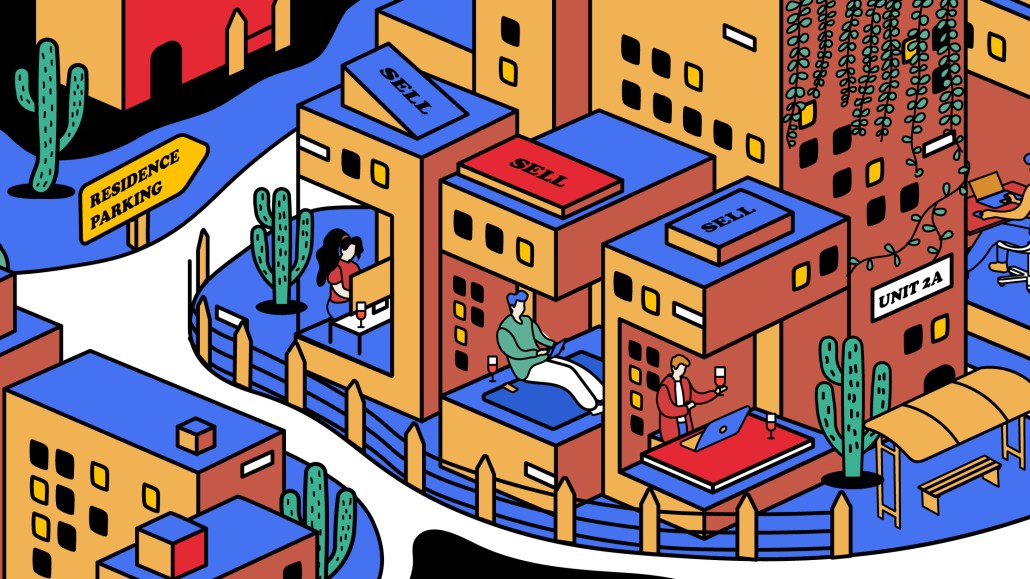Secure your place at the Digiday Media Buying Summit in Nashville, March 2-4
‘We have the capability’: How the coronavirus crisis has accelerated advertising’s shift to agility

This Future of Marketing Briefing covers the latest in marketing for Digiday+ members and is distributed over email every Friday at 10 a.m. ET. More from the series →
For years, marketers and agency execs have bemoaned some of the dated processes of the industry. Ask anyone what they would change and you’d probably hear a diatribe on how there are too many cooks in the kitchen or how seemingly simple decisions take much longer than they should.
Suffice it to say: There has long been a push to make advertising more agile, nimble and flexible but that hadn’t truly happened until the coronavirus changed everything. There were pressures in place to do so of course, but the urgency to truly change wasn’t really there. However, over the last six months, the movement to reshape advertising to actually be agile, nimble and flexible has no longer been an abstract idea but rather a necessity.
Instead of changing processes because the way things were done was laborious and tedious, agency execs and marketers have had to make decisions on the fly, replan media budgets on a dime and make ads in ridiculously short windows to make an impact. What comes next, according to marketers and agency execs, isn’t a return to how business was done before once some semblance of normalcy returns but a fine-tuning of the new processes that have allowed the industry to live through the sweeping disruption.
“Covid has taught us we can work and decide faster,” said TBWA/Chiat/Day New York CEO Rob Schwartz. “A breakthrough is the speed with which decisions can be made on the client side. Clients seem to be making decisions faster. There is less ‘overthinking’ in the process which can lead to more intuitive decisions on work. And that means fewer focus groups. It also means we are able to bring work to market faster.”
Kari Shimmel, chief strategy officer at Campbell Ewald echoed that sentiment. “This work from home experience has taught us all that we have the capability of creating quickly and with extreme limitations to production,” said Shimmel. “Part of this speed is now enabled by fewer rounds of approval and impromptu video chats through platforms that are removing some of the formal barriers between client and agency relationships.”
While some execs say that ad-hoc decision making happens during good times and bad in advertising, the need to do so has hit “unprecedented levels,” said Mastercard chief marketing and communications officer Raja Rajamannar. Now that marketers and agency execs alike have had to reshape processes due to pressure from the multiple crises, it’s unlikely that they will snap back to the way business was previously done.
“I do believe we will continue in this mold once things get back to normal,” said Rajamannar. “[If you’ve seen that] you can do things faster, better and cheaper, why wouldn’t you continue to do that once things come back? Some [of the new ways of doing business] will continue in post-Covid times.”
Execs also believe that speed as well as fewer in-person meetings will remain as flying across the country when you know you can get something done over Zoom may be seen as inefficient and unnecessarily expensive now. That’s not to say that everything about how business was done pre-Covid will be gone, but that what can be made more efficient will be.
Going forward there may simply be an understanding that marketers and agency execs can “be less formal,” said Shimmel. “Have the partnership that can solve challenges with a phone call, an email, a Teams chat or a working session, not an 18-person conference call with a 90-page deck.”
More in Marketing

Thrive Market’s Amina Pasha believes brands that focus on trust will win in an AI-first world
Amina Pasha, CMO at Thrive Market, believes building trust can help brands differentiate themselves.

Despite flight to fame, celeb talent isn’t as sure a bet as CMOs think
Brands are leaning more heavily on celebrity talent in advertising. Marketers see guaranteed wins in working with big names, but there are hidden risks.

With AI backlash building, marketers reconsider their approach
With AI hype giving way to skepticism, advertisers are reassessing how the technology fits into their workflows and brand positioning.





